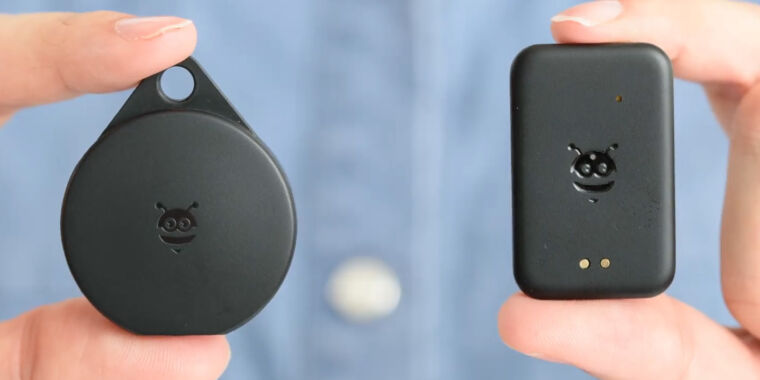The Delayed Launch of Google’s “Find My” Network
Google has been teasing the launch of its own device-tracking network, similar to Apple’s AirTags, for quite some time now. Despite having a vast network of 3 billion Android devices and ready-to-go hardware partners, Google seemed to be stuck in a holding pattern. The long-awaited network was set to revolutionize how Android users keep track of their belongings, but unexpected delays put a damper on the excitement.
The Apple Factor
So, what was causing the delay? The answer lies with Google’s Cupertino-based rival, Apple. Just before Google’s partners were about to unveil their Android network Bluetooth tags in May 2023, Google and Apple caught everyone off guard by jointly announcing a new standard. This standard aimed to detect “unknown” Bluetooth trackers and alert users if their phone detected any suspicious tracking activity. The move was prompted by concerns over potential misuse of devices like AirTags for stalking.
Google quickly implemented its end of the deal and rolled out AirTag detection in July 2023. However, a significant obstacle remained – Apple needed to reciprocate by implementing similar protections within iOS. The partnership, while unexpected, underscored the importance of user safety and privacy in the realm of device tracking.
Awaiting iOS 17.5
Fast forward to the present, and speculations are rife that iOS 17.5 might finally be the catalyst for Google’s “Find My” network launch. A recent beta release of iOS 17.5 revealed strings of code related to detecting and alerting users of non-Apple tracking devices. It is anticipated that the final release of iOS 17.5 could be in May, marking almost a year since Google’s initial plans were put on hold.
Just like AirTags and Tile networks before it, Google’s “Find My” network aims to provide users with Bluetooth tracking tags that offer location information for their belongings. The tags, equipped with low-power features, rely on compatible smartphones’ GPS chips to relay location data. This anonymous data-sharing process forms the backbone of a global, crowd-sourced network dedicated to tracking lost items.
Google’s Preparations
With the imminent release of iOS 17.5, Google appears to be taking the necessary steps to align its operations for the long-awaited launch. Reports indicate that the new “Find My Device” settings page is making its debut for select users, offering them the option to participate in the anonymous tracking network. While an official announcement from Google is still pending, the company seems to be gearing up for a potential launch.
Hardware partners like Chipolo and Pebblebee, who have been accepting preorders for Android tracking tags, are eagerly anticipating updates on the network’s launch. On the hardware front, rumors of Google developing its first-party tracking tag, codenamed “Grogu,” suggest potential advancements in the pipeline.
As the tech world eagerly watches for updates on Google’s “Find My” network, the partnership between Android and iOS for tracking device detection highlights the industry’s commitment to user safety and data privacy. While challenges and delays may have slowed the launch, the collaborative efforts between tech giants promise innovative solutions for enhanced user experiences.
Image/Photo credit: source url





